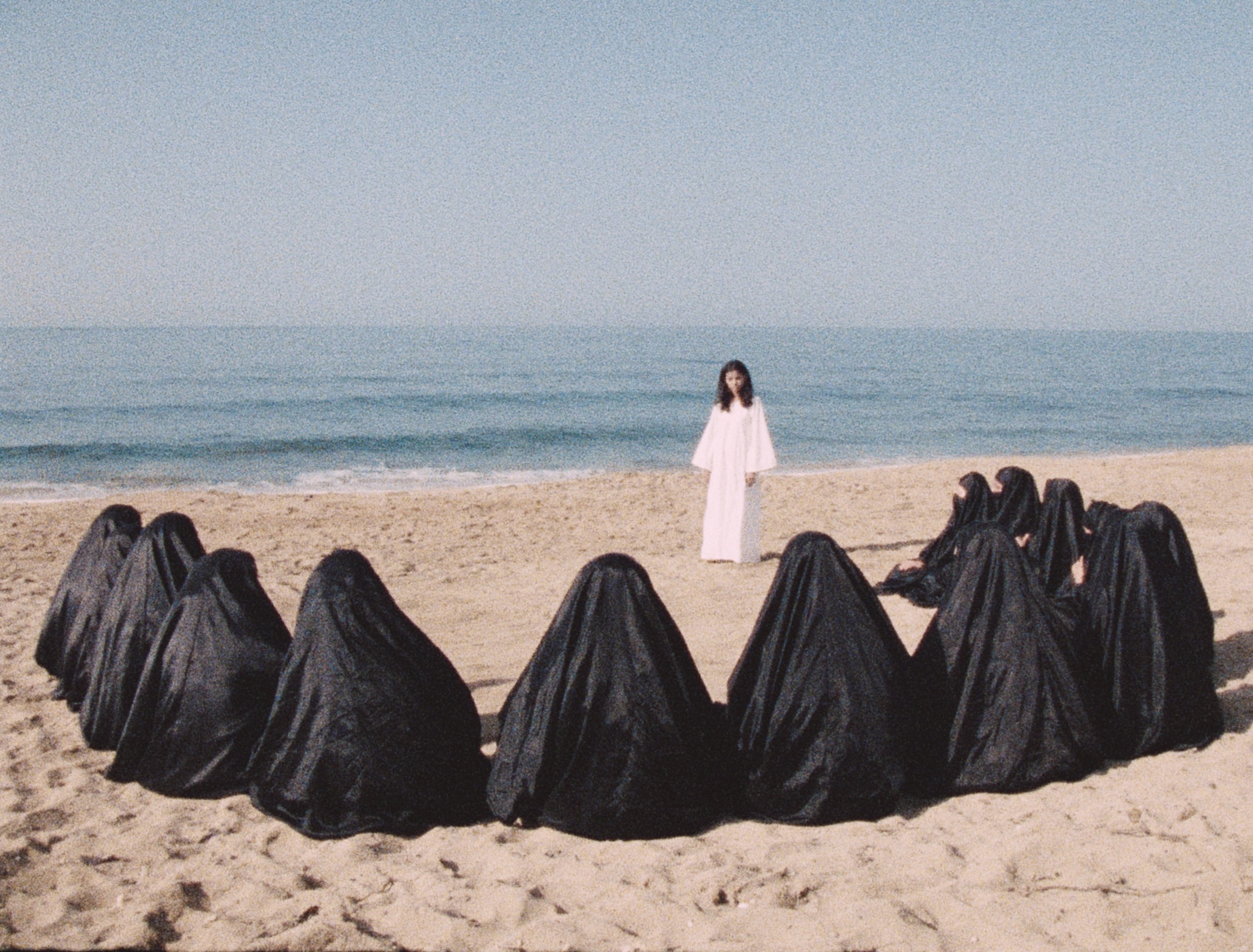Leila and The Wolves
Friday 13 October 2023, from 19:30 to 22:00
At the Auditorium, Level -2

Nadi Lekol Nas and the Sursock Museum present the restored film Leila and the Wolves produced in 1984 by Lebanese filmmaker Heiny Srour. The screening is followed by a conversation between Heiny Srour and Nada Abdel Samad.
Leila and the Wolves
Dir. Heiny Srour, 1984
90', UK/France/Belgium/Netherlands/Lebanon/Sweden
Refusing the colonial and masculine version of history, Leila travels through time and space of 80 years of Middle Eastern History. From the British Mandate to the Lebanese Civil War, she reveals the hidden role of women…And realizes that the Patriarchy also oppresses men!
Cast: Nabilah Zeitouny, Feryal Abillama’a, Emilia Fouad, and Rafic Ali Ahmad
Leila and The Wolves, 1984, is a Leila Films, British Film Institute, Belgian Ministry of French culture, NOVIB, NCO/Holland, Lebanese Ministry of Tourism, and Swedish international development authority co-production.
Restored by CNC - Centre national du cinéma et de l'image animée.
In Arabic with English subtitles
Screening is free of charge but places are limited, you can book yours here.
Heiny Srour is a filmmaker born in Lebanon in 1945. She studied Social Anthropology in Paris, where she later worked as a journalist and film critic and developed an interest in Third World cinema. In her films, Srour examines the role of Arab women in revolutions. She has shot films in Oman and Vietnam and has documented the Palestinian people’s struggle. Her documentary film The Hour of Liberation Has Arrived (1974) was screened at the Cannes Film Festival, the first film by a woman from the Arab world to be selected.
The screenings are part of our ongoing collaboration with Nadi Lekol Nas stemming from a common desire to highlight iconic Arab films belonging to our cinematic heritage.
Nadi Lekol Nas is a 20-year-old non-profit cultural organization whose mission is to safeguard and transmit a range of cinematographic, musical and literary productions documenting Levantine artistic and cultural expressions since the 1930s onwards.

![]()

